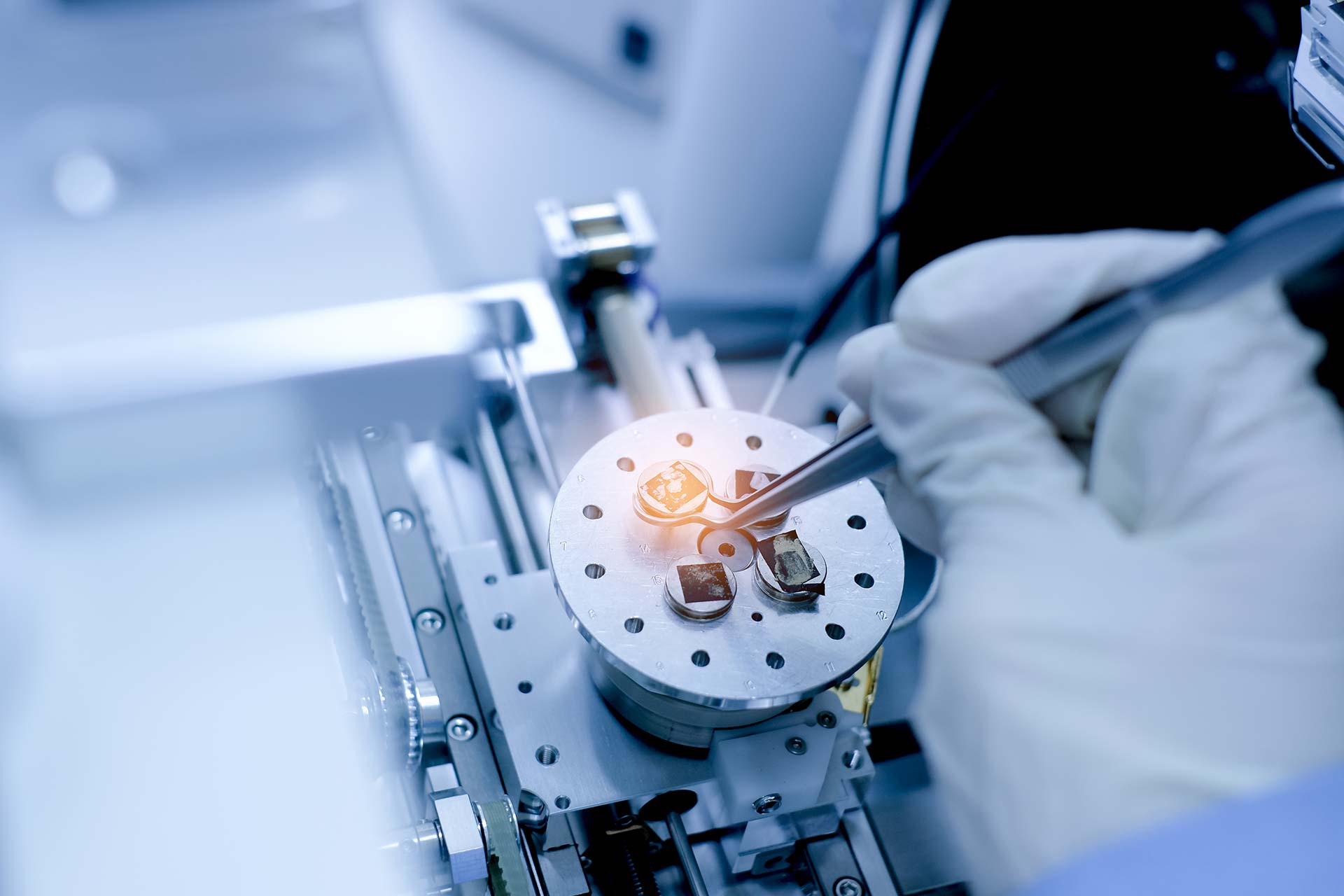.jpg)
World's first electron microscopy facility
The University of Liverpool will lead a new facility that will house a world-first in microscope technology. The facility is designed to drive forward scientific discoveries in a number of key areas.
The University of Liverpool is set to lead on the development of a new £125 million facility designed to drive scientific discoveries and technological advances in a range of important areas, such as sustainable energy, advanced materials, quantum technologies, and personalised medicine. It is part of a collaborative partnership between the University of Liverpool, the Science and Technology Facilities Council (STFC) and the Rosalind Franklin Institute.
The facility, known as RUEDI (Relativistic Ultrafast Electron Diffraction and Imaging), will be home to the world’s most powerful microscope for imaging dynamics. This development, which is funded by the UK Research and Innovation (UKRI) Infrastructure Fund, will help to position the UK as a global leader in electron microscopy.
The facility will allow researchers to gain better insights into how living cells change in real time, which will mean they can see better results in a number of key areas, including personalised health treatments, the generation of renewable energy and more sustainable battery design. It will also allow for potentially game-changing developments in the future, such as quantum computing, a new generation of computers.

RUEDI is the first facility to allow the evolution of structural changes in materials to be observed and determined through time-resolved experiments, rather than by static structure. This ground-breaking capability will help researchers develop the new technologies and solutions needed to address some of the most pressing challenges of our time.
A global leader in ultrafast electron microscopy
Watch Professor Nigel Browning discuss RUEDI's ground-breaking capability and how the facility will enable the dynamic, rather than static, study of biological and chemical processes in 'real time' to uniquely support UK scientific research.


